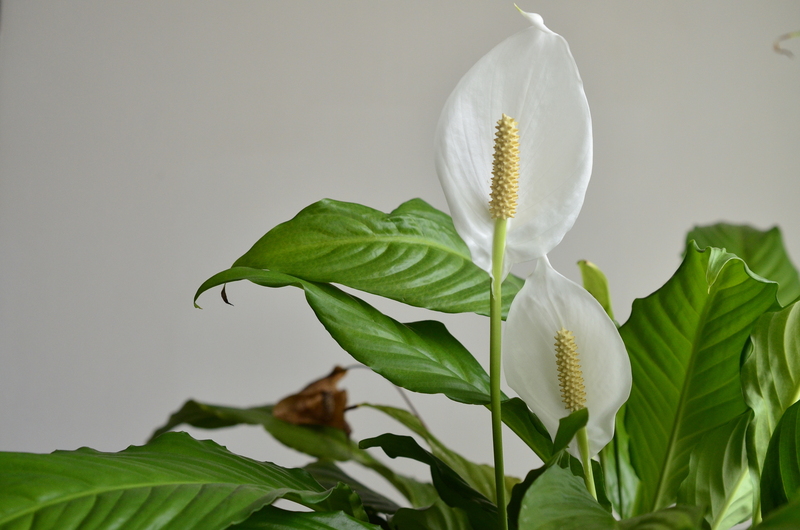Outsmart Weeds: 3 Insightful Tips for Control
Posted on 11/09/2025
Outsmart Weeds: 3 Insightful Tips for Effective Weed Control
Weeds pose one of the most persistent and frustrating challenges for homeowners and gardeners alike. Trying to maintain a healthy, vibrant garden or a lush green lawn often feels like a battle against relentless weeds that thrive in various conditions. Whether you're a seasoned green thumb or new to lawn care, learning how to outsmart weeds is vital for cultivating the landscape you desire. In this comprehensive article, we share 3 highly insightful tips for weed control that will elevate your weed-management strategy and help you reclaim your outdoor space.

Understanding the Weed Challenge: Why Simple Removal Never Lasts
Weeds are not just an eyesore--they can also rob your desirable plants of essential nutrients, sunlight, and water. Before exploring effective weed control tips, it's important to recognize why weeds prevail:
- Fast Growth Cycles: Weeds germinate and mature quickly, often outpacing the plants you wish to grow.
- Robust Seed Production: Many common weeds can scatter thousands of seeds in a single season, allowing them to reappear every year.
- Adaptable Root Systems: Extensive and hardy root systems make weeds difficult to pull out entirely, leading to rapid regrowth.
To outmaneuver these persistent plants, you need more than just sporadic hand-weeding or store-bought herbicides. Here are three expert-backed tips designed to help you achieve lasting (and eco-friendly) weed control.
Tip 1: Harness the Power of Mulching for Natural Weed Suppression
Why Mulching Works
Mulching is one of the most effective and natural weed control methods available. By spreading a protective layer over soil, mulch:
- Blocks sunlight, preventing weed seeds beneath from germinating.
- Reduces moisture loss, aiding your plants while depriving weeds of the conditions they crave.
- Improves soil structure and fertility over time if you use organic mulches.
Choosing the Best Mulch for Weed Control
There are various types of mulch to consider, each offering unique advantages. Organic mulches--such as shredded bark, straw, leaves, or compost--decompose over time, enriching the soil. Inorganic mulches, like landscape fabric, gravel, or black plastic, provide a physical blockade to weeds but do not enhance soil health.
- For flower beds: Use 2-3 inches of organic mulch. This not only suppresses weeds but also helps retain soil warmth and moisture.
- In vegetable gardens: Straw or untreated grass clippings work great. Avoid using hay, which may carry weed seeds.
- For paths and driveways: Consider landscape fabric topped with decorative gravel for long-lasting weed resistance.
Mulching Tips to Outsmart Weeds
- Don't skimp on thickness; thinner layers let sunlight through and enable weeds to sprout.
- Keep mulch away from plant stems to prevent rot and disease.
- Top up the mulch annually as it breaks down or thins out over time.
*Pro Tip: Lay down a sheet of wet newspaper or cardboard under your mulch for an added weed barrier that will naturally decompose.
Tip 2: Smart Timing--Catch Weeds Early and Consistently
Understand the Weed Growth Cycle
The second strategic tip for controlling weeds is to intervene at the right time. Weeds are easiest to handle when young--before they set seed and establish deep roots.
- Early Spring: This is the prime time for weed prevention. Begin as soon as the soil can be worked.
- After Rainfall: Moist soil makes it easier to pull or hoe weeds, as roots slide out without breaking.
Consistency Is Key
By scanning your garden or yard weekly for emerging weeds, you avoid letting any opportunistic invaders take hold. Here's why this tip is vital for long-term weed control:
- Prevents Seed Production: Removing young weeds stops them from flowering and seeding, reducing future outbreaks.
- Reduces Root Competition: Catching weeds early prevents them from upstaging your plants for resources.
- Saves Time in the Long Run: Little-and-often maintenance is far less labor-intensive than tackling a weed jungle at season's end.
Smart Removal Techniques
- Use a hand fork or hoe to loosen soil and uproot weeds, especially those with taproots.
- Never shake off soil from pulled weeds if they have seeds, to avoid re-seeding the area.
- Dispose of all weed debris away from the garden, particularly before seeds ripen.
_Developing a consistent weed patrol routine keeps your lawn or garden healthy and robust, vastly reducing the amount of time, energy, and chemicals required._
Tip 3: Prevent, Don't Just React--Strategic Planting and Lawn Care for Long-Term Weed Control
Dense Planting: Crowding Out Weeds
A bare patch of soil is an open invitation for weeds! By employing dense planting techniques, you limit the opportunities for weeds to sprout. Here's how to use strategic planting as a natural weed deterrent:
- Select robust groundcovers, perennials, or shrubs to occupy available space and block sunlight to the soil.
- Use staggered or close row-planting in vegetable gardens, so foliage shades out emerging weeds.
- Cultivate a thick, healthy lawn to outcompete weeds for nutrients and water.
Optimizing Lawn and Garden Health
When your desired plants thrive, they naturally resist invasion. Tips for maintaining weed-resistant turf and beds include:
- Mow lawns at the recommended height--taller grass shades soil, inhibiting weed seed germination.
- Feed and water adequately to promote strong, competitive growth in your chosen plants.
- Reseed or patch bare spots promptly before weeds move in.
Utilize Pre-Emergent Weed Control
Pre-emergent products form an invisible barrier in the soil, stopping weed seeds from sprouting. They target weeds before they're visible, making them a powerful addition to your weed control strategy.
- Apply pre-emergent herbicides in early spring, when soil temperatures reach about 55?F (13?C).
- Water in lightly to activate the barrier, but avoid disturbing the soil afterward.
- Use only in established beds, not around new seeds or transplants, as pre-emergents can inhibit all seedlings.
_Careful planning and preventive maintenance are the cornerstones of lasting weed management. With less open ground for weeds and healthier desired plants, you naturally discourage weed invasions._
Bonus! Alternative & Organic Approaches to Outsmart Weeds
Homemade Weed Control Remedies
- Boiling Water: Effective for cracks in driveways or patios--pour directly on the weed to cook the roots.
- Vinegar: Household vinegar scorches young leaves, especially on a sunny, dry day.
- Corn Gluten Meal: Acts as a natural pre-emergent in lawns (won't control existing weeds).
Note: Take care with homemade weed killers, as they're non-selective and can damage desirable plants.
Mechanical Barriers and Tools
- Landscape Fabric: Blocks weeds in paths and ornamental beds--cover with mulch or stones for extra defense.
- Weed Flamers: Blast weeds in walkways with a quick jet of flame (best for non-flammable surfaces).
Water Wisely
Weeds thrive in the same water-rich environments as garden plants. Use targeted irrigation (like soaker hoses or drip systems) to water plants directly and deprive surrounding weeds of moisture.

Frequently Asked Questions about Outsmarting Weeds
- How often should I mulch for weed control?
Top up mulch every year, or whenever you notice it thinning. Always maintain at least a two-inch layer. - Is pulling weeds better than using chemicals?
Hand-pulling, especially when weeds are young, is safer for your garden's ecosystem and helps manage weeds without adding chemicals. - What is the best time of day to pull weeds?
After a rainfall or early in the morning when soil is damp makes weed removal much easier. - Can organic gardens stay completely weed-free?
Absolute weed-free status is rare, but you can keep weeds to a manageable level with consistent effort and good practices.
Conclusion: Outsmart Weeds for a Vibrant Garden and Lawn
Taming the war on weeds is not only possible--it can be deeply rewarding. By combining mulching, smart timing, preventive strategies, and sustainable practices, you outsmart common weeds and help your preferred plants thrive. Whether you're maintaining a home lawn, cultivating a kitchen garden, or landscaping a commercial property, implementing these three insightful tips will transform your approach to weed control.
Remember, weed control is a journey, not a one-time task. With perseverance and these proven methods, you'll enjoy healthier plants and lower maintenance, season after season.
Key Takeaways on Outsmarting Weeds:
- Mulch thoroughly to block out weed seeds and conserve soil moisture.
- Catch weeds young by monitoring and removing them consistently.
- Opt for dense planting and preventive care to stop weeds from gaining a foothold.
Now armed with these insightful tips for weed control, you're ready to outsmart weeds and create your dream outdoor oasis. Start today for a greener, cleaner, and more enjoyable landscape!
Latest Posts
9 Essential Tips for Beginners to Start a Flourishing Garden
How to Build a Fun and Safe Garden Environment for Kids
Vertical Gardening Techniques for Any Space

